Eric Garner: NY officer in 'I can't breathe' death fired
- Published
NYPD Commissioner fires Daniel Pantaleo, who arrested Eric Garner
The New York City police officer involved in the high-profile 2014 chokehold death of an African-American man has been fired.
Daniel Pantaleo was sacked over the death of Eric Garner, whose dying words "I can't breathe" became a rallying cry for protests against police brutality.
A state grand jury declined to press criminal charges.
After a lengthy civil rights investigation, federal prosecutors said last month they would bring no charges.
The decision, based on the recommendation of a police department disciplinary judge, was announced by New York Police Commissioner James O'Neill on Monday. Mr Pantaleo was suspended while awaiting the commissioner's decision.
In explaining his decision, Mr O'Neill said mobile phone video of Garner's death clearly shows the officer used a chokehold, which is banned by the New York Police Department (NYPD).
"It is clear that Daniel Pantaleo can no longer serve as a New York City police officer," Mr O'Neill said.
"Had I been in Officer Pantaleo's situation, I may have made similar mistakes," he continued.
Eric Garner death inspires an unlikely police experiment
"None of us can take back our decisions," he said, adding: "Especially when they lead to the death of another human being."
Mr Pantaleo's lawyer said he would appeal against the commissioner's decision to fire him.
What happened to Eric Garner?
Garner was arrested on suspicion of illegally selling loose cigarettes on 17 July, 2014.
In video of the arrest recorded by a bystander, Mr Pantaleo, who is white, is seen with his arm wrapped around Garner's neck as they struggled on a street in the city's Staten Island borough.
The officer's lawyer contends his client used approved tactics to arrest Garner, but earlier this month NYPD Deputy Commissioner of Trials Rosemarie Maldonado ruled that Mr Pantaleo had used a chokehold - which is banned by the police department.
As the officers continued to restrain Garner, the asthmatic was heard repeatedly saying: "I can't breathe."
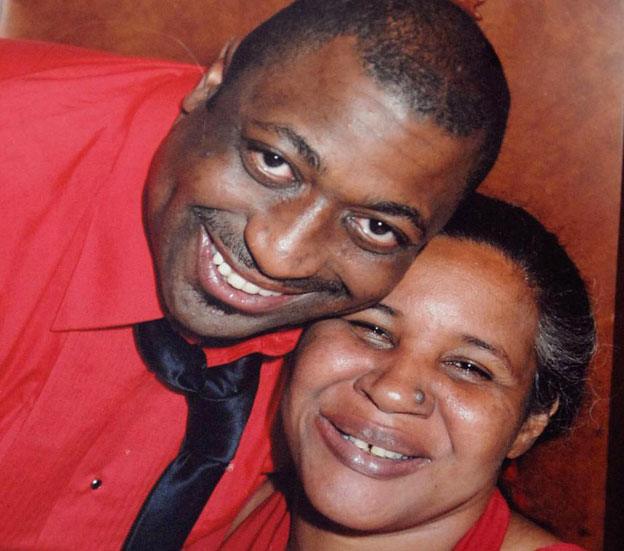
Eric Garner with wife Esaw

Mr O'Neill said Mr Pantaleo's decision to maintain the chokehold on the ground is what led to his firing.
The 43-year-old father of six, who weighed more than 350lb (160kg), appeared to lose consciousness and later was pronounced dead in hospital.
A city medical examiner ruled the chokehold contributed to Garner's death.
In 2015, the city of New York reached a settlement with the family for $5.9m (£4.8m) after they brought a wrongful-death lawsuit arguing that Garner was not given sufficient medical aid by emergency officials.
What's the reaction?
New York Attorney General Letitia James said Mr Pantaleo's sacking would bring justice to Garner's family.
"While we will never be able to change the events that transpired or bring Mr Garner back, today, some semblance of justice is finally being served," she said.
Erica Snipes talks about the loss of her father
Eric Garner's daughter, Emerald Garner, thanked Commissioner O'Neill for firing Mr Pantaleo.
Wearing a T-shirt with the word "MURDERER" on the front, she vowed her family would still pursue action against the other officers involved and fight to legally ban the chokehold blamed for her father's death.
The president of the police union, Patrick Lynch, pilloried NYPD as "rudderless and frozen".
"The leadership has abandoned and left our police officers on the street without backing," said Mr Lynch.
Civil rights leader Reverend Al Sharpton said: "It is a day that's five years too late."
He added: "This is not some moment of pleasure or joy for the family that has lost so much."
"Today we have finally seen justice done," said New York Mayor Bill de Blasio, who came under fire for his administration's handling of the case.
He added: "We can react with bitterness and division and be trapped by the sins of our past, or we can transform the suffering into progress, we can find redemption."
The firing comes as California enacts one of the strictest laws limiting police force in the US.
On Monday, Governor Gavin Newsom signed into law Assembly Bill 392 - which is intended to reduce police shootings.
The bill says that officers can only use deadly force when "necessary" to prevent imminent death or serious injury, rather than when "reasonable" as current laws state.
- Published2 August 2019
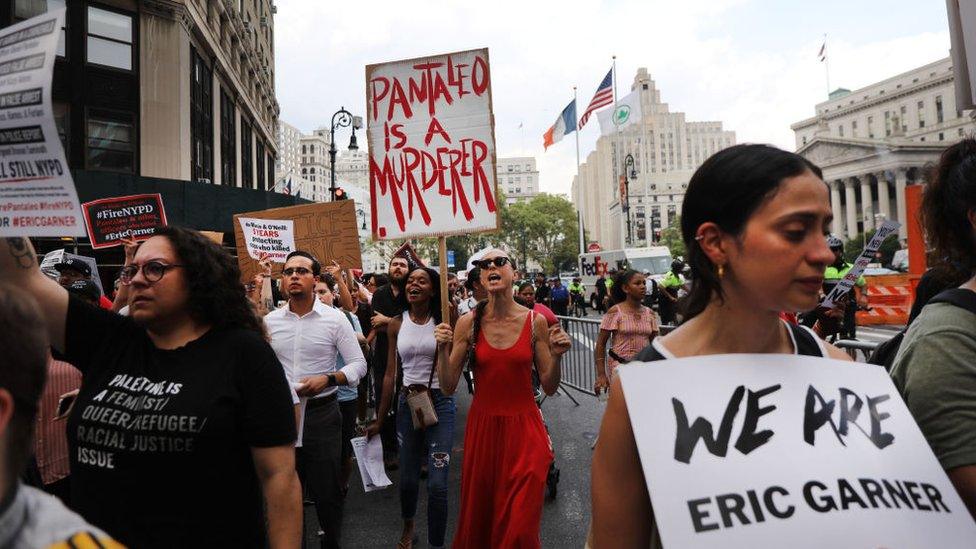
- Published3 January 2018
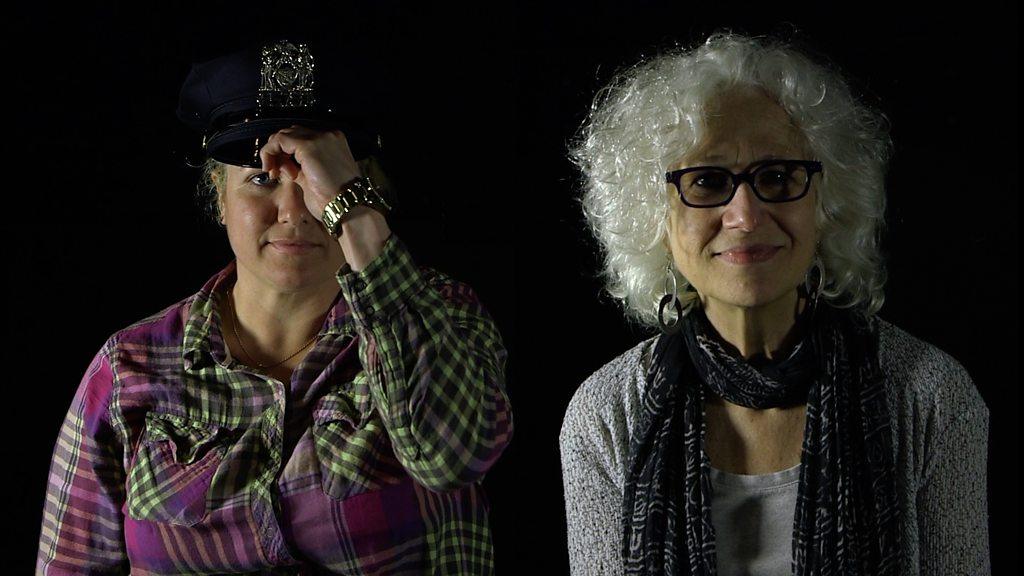
- Published3 December 2014
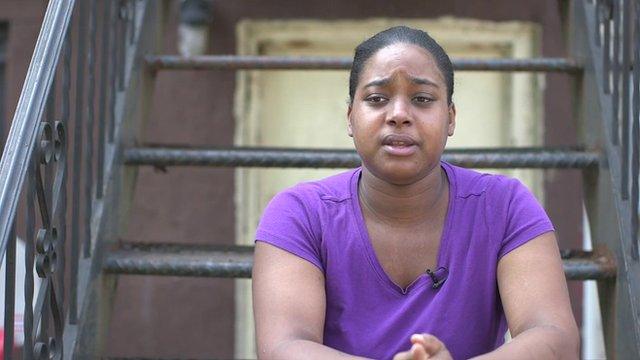
- Published2 June 2017
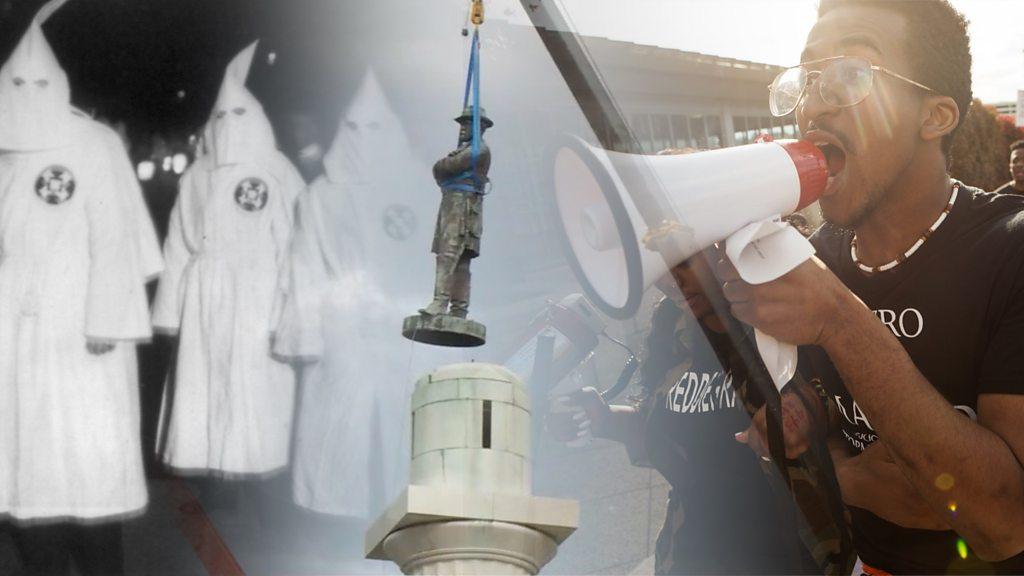
- Published5 December 2014
